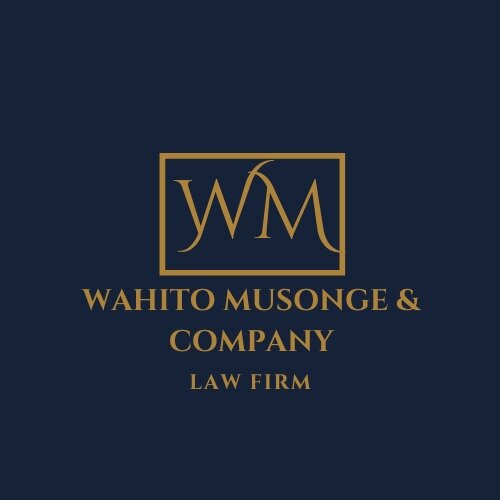Best Nursing Home Abuse Lawyers in Kenya
Share your needs with us, get contacted by law firms.
Free. Takes 2 min.
Or refine your search by selecting a city:
List of the best lawyers in Kenya
About Nursing Home Abuse Law in Kenya
Nursing home abuse in Kenya refers to the mistreatment, neglect, or harm caused to elderly residents within nursing homes or care facilities. This abuse can take various forms, such as physical, emotional, sexual, or financial abuse, as well as neglect or abandonment. As the population ages and more families rely on nursing facilities for care, awareness and concern about such abuse have increased significantly. Legislation in Kenya seeks to protect the elderly and ensure they receive the respectful, safe, and compassionate care they deserve within these institutions.
Why You May Need a Lawyer
There are several situations in which individuals may seek legal assistance concerning nursing home abuse. Family members may suspect mistreatment or neglect of their loved ones in a nursing facility and need legal counsel to investigate and address these concerns. Victims of abuse may require representation to seek justice and secure compensation for their suffering. Additionally, nursing homes could face legal consequences if they fail to meet the necessary standards and regulations set by law. A lawyer specializing in elder law can provide guidance in filing complaints, navigating complex legal processes, and representing affected parties in court.
Local Laws Overview
Kenyan law encompasses several regulations and frameworks relevant to nursing home abuse. Notably, the Constitution of Kenya 2010 enshrines the right to dignity and freedom from any form of violence or inhuman treatment. The Older Persons Policy and the Enactment of the Care and Protection of Older Members of Society Bill also underscore the responsibilities of institutions in caring for the elderly. Additionally, criminal law addresses acts of abuse with penalties for offenders, and civil action may be pursued for compensation. These legal instruments aim to establish accountability and protect the rights of nursing home residents.
Frequently Asked Questions
What constitutes nursing home abuse?
Nursing home abuse includes physical, emotional, financial, or sexual harm, and neglect or abandonment of elderly residents in care facilities.
How can I recognize signs of nursing home abuse?
Signs may include unexplained injuries, sudden emotional withdrawal or changes in behavior, poor hygiene, unexplained financial transactions, or unexplained weight loss.
What should I do if I suspect nursing home abuse?
If you suspect abuse, document your observations, report to the facility's administration, and consider contacting legal authorities or a lawyer for further action.
Are there specific legal protections for elderly people in Kenya?
Yes, the Constitution and various legislations provide protections for the elderly, ensuring their dignity, safety, and well-being in nursing homes.
Can a legal case be filed against a nursing home?
Yes, legal action can be taken against a nursing home if there is evidence of abuse or neglect. A lawyer can help navigate the legal process.
What compensation might be available in a nursing home abuse case?
Compensation may include costs for medical treatment, pain and suffering damages, and potentially punitive damages depending on the severity of the abuse.
How long does it take to resolve a nursing home abuse case?
The duration of a case varies depending on factors like the complexity of evidence and legal proceedings. A lawyer can provide a more specific timeline.
Can I anonymously report suspected nursing home abuse?
Yes, you can report anonymously to relevant authorities, though providing contact information can facilitate a more thorough investigation.
What role does the government play in regulating nursing homes?
The government sets standards and policies for nursing homes, ensuring compliance through inspections and regulation enforcement.
How can I ensure my loved one's safety in a nursing home?
Conduct thorough research before choosing a facility, visit regularly, and maintain open communication with caregivers and staff to monitor care quality.
Additional Resources
For those seeking further information or needing to report abuse, several resources can be helpful. The Kenya National Commission on Human Rights (KNCHR) provides oversight and advocacy. The Ministry of Labour and Social Protection can be consulted for policy-related inquiries. Non-governmental organizations such as HelpAge International offer support and resources concerning elder rights and welfare in Kenya.
Next Steps
If you require legal assistance regarding nursing home abuse, begin by consulting with a lawyer experienced in elder law and abuse cases. They can provide advice on how best to proceed and represent you in any legal proceedings. Document all relevant information and evidence to support your case. Consider reaching out to local support groups or advocacy organizations if additional help is needed. Taking prompt action ensures that the rights and dignity of vulnerable elderly individuals are upheld.
Lawzana helps you find the best lawyers and law firms in Kenya through a curated and pre-screened list of qualified legal professionals. Our platform offers rankings and detailed profiles of attorneys and law firms, allowing you to compare based on practice areas, including Nursing Home Abuse, experience, and client feedback.
Each profile includes a description of the firm's areas of practice, client reviews, team members and partners, year of establishment, spoken languages, office locations, contact information, social media presence, and any published articles or resources. Most firms on our platform speak English and are experienced in both local and international legal matters.
Get a quote from top-rated law firms in Kenya — quickly, securely, and without unnecessary hassle.
Disclaimer:
The information provided on this page is for general informational purposes only and does not constitute legal advice. While we strive to ensure the accuracy and relevance of the content, legal information may change over time, and interpretations of the law can vary. You should always consult with a qualified legal professional for advice specific to your situation.
We disclaim all liability for actions taken or not taken based on the content of this page. If you believe any information is incorrect or outdated, please contact us, and we will review and update it where appropriate.
Browse nursing home abuse law firms by city in Kenya
Refine your search by selecting a city.









